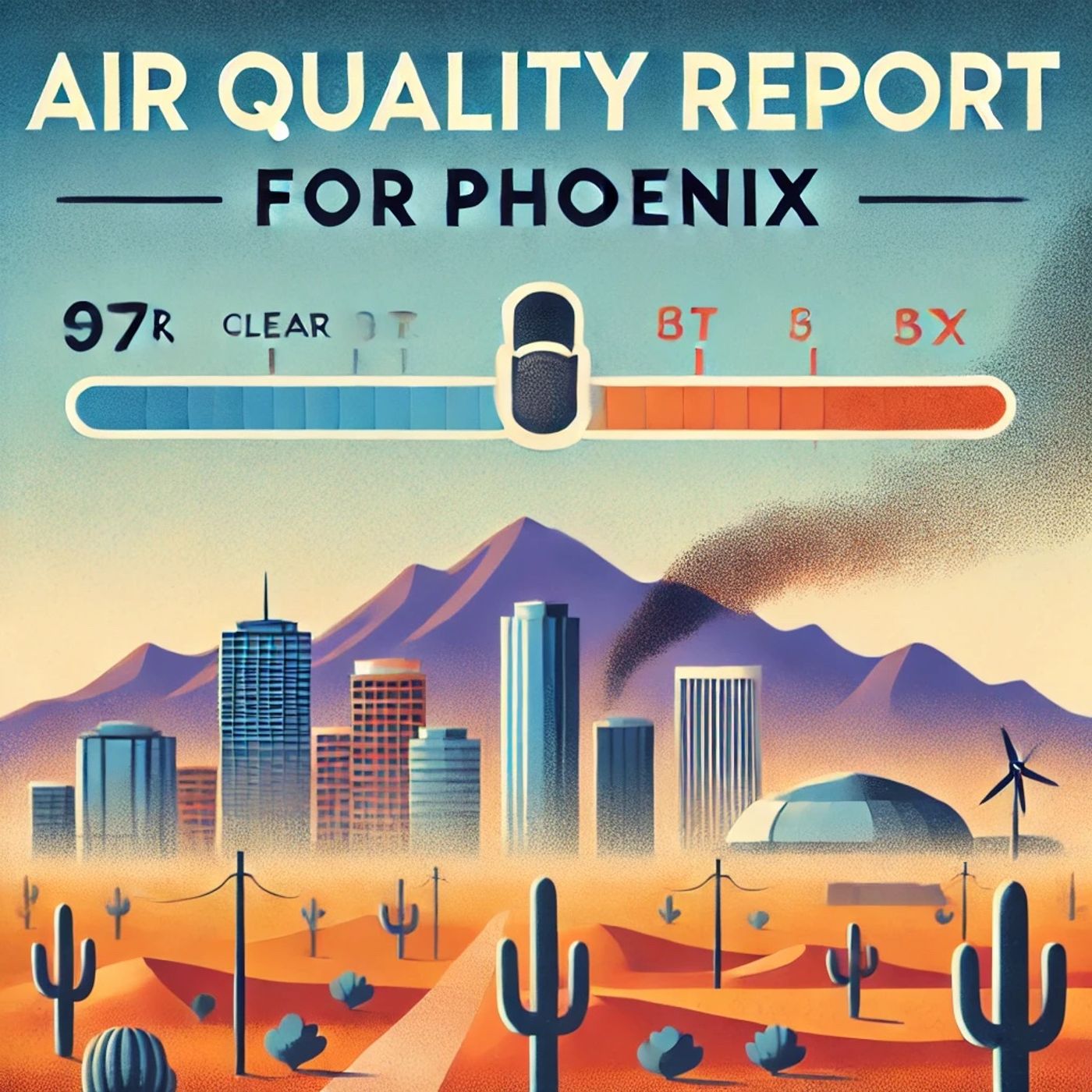Listen "Phoenix Air Quality a Vital Concern Amid Fluctuating Conditions"
Episode Synopsis
Today’s air quality in Phoenix, Arizona is a vital concern for residents and visitors alike as the city often experiences fluctuating air quality levels due to its unique geographic and climatic conditions. The Arizona Department of Environmental Quality provides regular updates on air quality, using the Air Quality Index to communicate the status of pollution on any given day. Phoenix is known for its hot desert climate, which can exacerbate pollution levels, particularly ozone and particulate matter. Ozone forms when pollutants from sources like vehicle emissions and industrial facilities react in sunlight, while particulate matter can include a range of substances, including dust and soot. The city’s air quality can be notably impacted during temperature inversions, when a layer of warm air traps pollutants close to the surface. Today, the Air Quality Index in Phoenix is anticipated to be moderate. This means that while air quality is generally acceptable, there may be some pollutants present that pose a risk to individuals particularly sensitive to air pollution. These individuals include children, the elderly, and those suffering from respiratory conditions such as asthma. On moderate days, precautionary measures such as limiting strenuous outdoor activities are advisable for these groups. One of the main contributors to today’s air quality level is likely to be ozone, particularly given Phoenix’s increased temperatures and sunlight as the city edges closer to summer. Traffic emissions, an ever-present issue in this sprawling metropolis, will also contribute to the levels of nitrogen oxides which react with volatile organic compounds in the presence of sunlight to form ground-level ozone.In addition, dust from construction sites and unpaved areas can elevate levels of particulate matter, especially on windy days. This is a challenge the city consistently contends with, given its rapid development and dry environment. Measures such as dust control regulations on construction sites have been implemented to help mitigate this issue, but it remains a persistent concern for air quality management.Phoenix continues to work towards cleaner air through various initiatives. The Maricopa Association of Governments, alongside local and state entities, has been active in promoting the reduction of vehicle emissions via public transit improvements and bicycle-friendly infrastructure development. The Valley Metro light rail expansion is among several efforts aimed at reducing the dependency on personal vehicles, which are a major source of emissions. Additionally, the city encourages the use of alternative fuels and the adoption of electric vehicles as part of its strategy to improve air quality.Residents and visitors can play their part in reducing air pollution by utilizing public transportation, avoiding idling vehicles, and adhering to any air quality advisories, especially on days when conditions are anticipated to become more challenging. Staying informed about daily air quality levels is crucial for protecting health and enhancing the quality of life in Phoenix.This content was created in partnership and with the help of Artificial Intelligence AI
More episodes of the podcast Phoenix Air Quality Report - Daily
Phoenix Enjoys Excellent Air Quality Today
23/08/2025
 ZARZA We are Zarza, the prestigious firm behind major projects in information technology.
ZARZA We are Zarza, the prestigious firm behind major projects in information technology.
